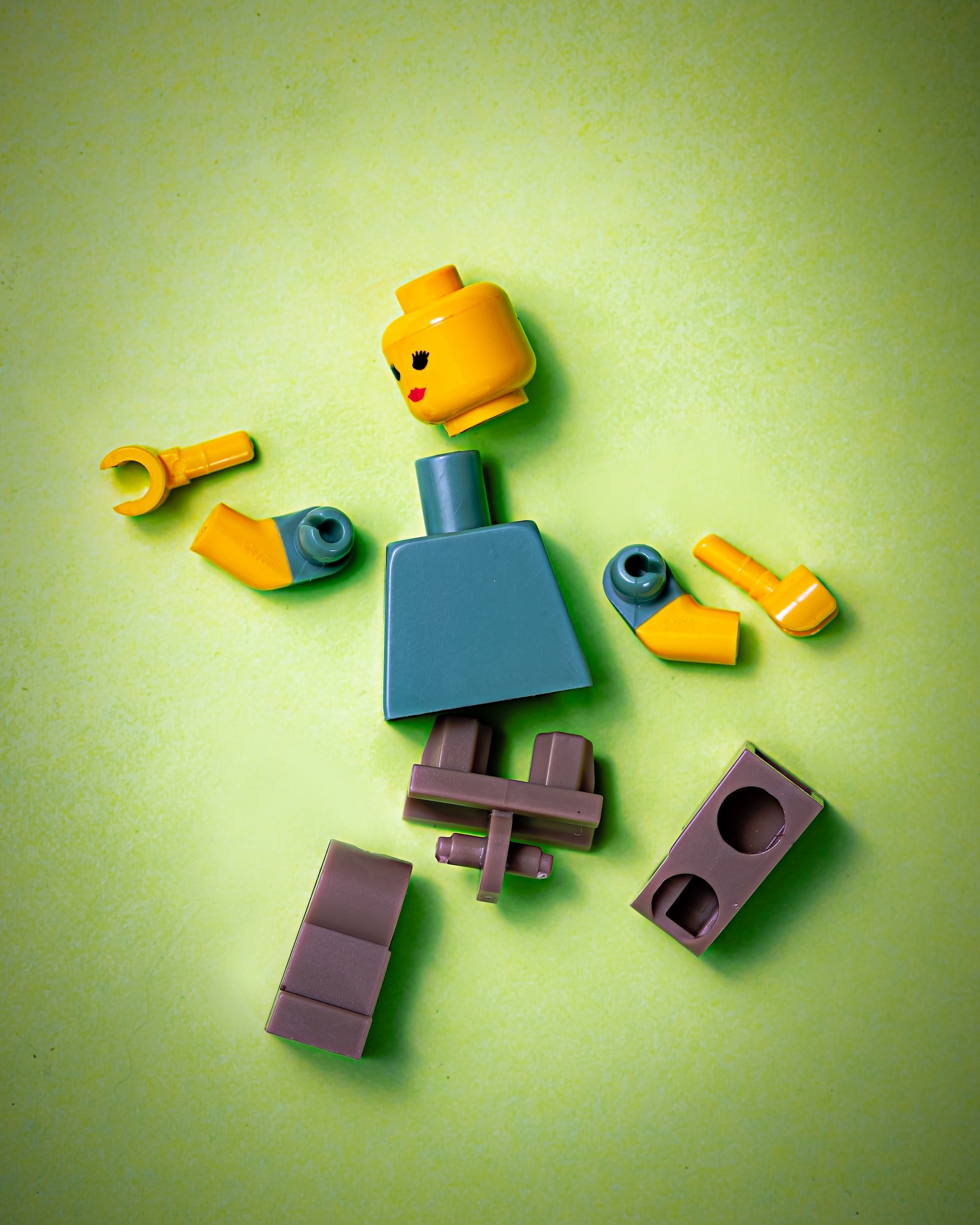Living a Healthy and Fulfilling Life While Recovering from Sex Addiction
Recovery from sex addiction, porn addiction, repeated infidelity or compulsive sexual behavior does not have to suck. Allow me to repeat that: your life during your recovery journey does not have to suck. I’ve worked with hundreds of men and almost every single one of them begins their recovery journey with a desire to inflict pain on themselves in an effort to relieve themselves of the guilt, shame, and regret from the pain they’ve inflicted on others. This process can be a celebratory one. Think about it, whether you’ve confessed or you’ve been discovered, you’re now living in a more honest and authentic space than you have in quite some time. If you’re reading this post it means that you are at least considering a life with healthier outcomes and less compulsion… and that is a life that is worth celebrating, not one requiring self-imprisonment or punishment.
Is Sex Addiction a Real Thing?
The occurrence of sexual addiction is a topic that has been the subject of discussion for a considerable amount of time. Although there are people who believe that sex addiction is a genuine condition, there are also people who do not believe that it is a disorder. However, recent studies have shown that sex addiction is in fact a real thing. The evidence that supports this conclusion will be discussed in this post. Consideration will be given to recent studies that have shown that sex addiction is in fact a real thing. In addition to this, we will investigate the reasons why some people continue to argue that sex addiction is not an actual disorder.
The Truth About Affair Recovery: Grief Process not Trust Rebuild
The discovery of an affair can be a life-changing event for anyone currently involved in a committed partnership. It is essential to have the understanding that healing infidelity is not simply a matter of reestablishing trust but also of working through the sadness that comes with the termination of a romantic partnership. It is necessary to come to terms with the fact that the relationship has ended and to go on to the next step in the process, which is to enter into a new relationship contract.
Narcissism & Sex Addiction’s Relationship
Research indicates that there may be a connection between Narcissistic Personality Disorder (NPD) and Sex Addiction, despite the fact that these two problems may seem to be unconnected to one another. In this post, let’s look at the correlation between Narcissistic Personality Disorder (NPD) and sexual addiction, as well as the possible effects that both of these diseases may have on people and the relationships in their lives.
240 Million Men are Sex or Porn Addicts
Sexual and pornographic addiction is pervasive in today's culture. According to multiple research studies, a quarter of a billion males across the globe struggle with obsessive sexual activity. It is very likely that the real total is significantly higher as these types of studies rely on an individual’s ability to answer vulnerably on a survey.
Is Sex Addiction a Mental Illness?
Is Sex Addiction a Mental Illness? According to the findings of the research project, more than 75 percent of the participants fulfilled the criteria for at least one kind of sexual problem. These disorders include compulsive sexual behavior disorder, hypersexual disorder, and paraphilic disorder. In addition, more than half of the people who took part in the study reported having sexuality-related issues that had persisted for more than three years. This figure was 56%.
In addition, further results from this research indicated critical linkages between sexual addiction and mental health disorders such as anxiety and depression. These difficulties were investigated in this particular study. To be more specific, those who reported greater levels of sexual compulsivity were more likely to report symptoms associated with major depressive disorder or generalized anxiety disorder as compared to individuals who did not engage in compulsive sexual activities.
Is Relapse Mandatory & 4 Reasons Why it Happens
It is possible for individuals to recover from substance abuse or addiction without experiencing a relapse. Recovery is a process that involves making changes to one's behavior, thoughts, and habits in order to overcome substance abuse and build a healthy, substance-free life. Relapse is a common part of the recovery process for many people, and it can be a normal and expected occurrence. However, it is also possible for people to achieve long-term recovery without experiencing a relapse.
The First Step in Getting Help with Sex or Porn Addiction
The first step in asking for help with an addiction is often acknowledging that you have a problem and that you need support. This can be a difficult process, as it can be challenging to admit that you have a problem and that you need help. However, it is an important step in seeking treatment and overcoming your sex addiction or porn addiction.
5 Types of Porn Addiction Therapy
It is important to understand that seeking porn addiction therapy is a very brave step toward recovery. It’s not easy to admit to an addiction of any kind, but accepting it and seeking treatment is the beginning of a better life. No matter what type of therapy you choose, you will gain peace of mind, a release from shame, and control over your life that you may feel you have lost because of your porn addiction. Each of these treatment options are effective and can help to heal the addiction over time.
Compulsive Sexual Behavior Disorder: What it is & 5 Steps to Overcome
Compulsive sexual behavior disorder (CSBD) is a condition characterized by a pattern of compulsive sexual thoughts, urges, and behaviors. It can take the form of hypersexuality, addiction to pornography, or other forms of risky sexual behavior. For those who struggle with compulsive sex behavior, it can be difficult to break out of this cycle. However, it is possible to take control of your behavior and create healthy habits around your sexuality. Here are five steps you can take to start overcoming CSBD today.
Bouncing Back from Rock Bottom: 5 Steps to be Stronger Than Ever
Everyone makes mistakes. We're only human, after all. But sometimes those mistakes can lead us to a place we never thought we'd find ourselves: rock bottom. Whether it's because of a job loss, the end of a relationship, or some other personal setback, hitting rock bottom is a feeling we all hope to avoid.
But it doesn't have to be the end of the world. In fact, some people even view hitting rock bottom as a blessing in disguise. It's an opportunity to start over, to rebuild your life from the ground up. If you're currently facing tough times, know that it's not the end. Use these five steps to pick yourself up, dust yourself off, and bounce back even stronger than before.
The Importance of Being Vulnerable with Your Partner
How To Become More Vulnerable With Your Partner
If you're not used to being vulnerable with your partner (or anyone else), it might feel daunting at first. Here are a few tips on how to take those first steps:
Start small: Don't try to share everything at once—that will only overwhelm both of you. Instead, start with something relatively minor that's been on your mind recently. For example, maybe there's something you've been wanting to do but haven't had the courage to mention it until now. Or maybe there's a minor disagreement between you that you've been avoiding addressing head-on. Whatever it is, start small and go from there.
What is an Integrity Disorder?
Integrity disorders are a type of personality disorder characterized by a lack of moral principles or a relaxed attitude towards morality. People with integrity disorders often struggle to tell right from wrong and may engage in criminal activity or other reckless behavior without any regard for the consequences. If you suspect that you or someone you know may have an integrity disorder, here are some things you can do to better understand the condition.
Therapeutic Separation: The Benefits & When to Implement
No couple is perfect, and even the strongest relationships go through tough times. During these difficult periods, it's not uncommon for couples to consider a temporary separation. This strategy, known as "therapeutic separation," can be an effective way to give both partners some space to think about the relationship and figure out what they really want. Here's what you need to know about therapeutic separation, including when it might be a good idea and what benefits it can offer.
What is Therapeutic Separation?
Therapeutic separation is a temporary break from a relationship that is taken in order to allow both partners time to assess the relationship and figure out what they want from it. This break can be either physical or emotional, or both. It's important to note that therapeutic separation is not the same as divorce—the goal is not to end the relationship permanently, but rather to give both partners some time and space to work through their issues.
The 5 Best Books for help with Porn Addiction
The 5 best books for porn addiction. The list includes books for men, women, gay men (chemsex) and partners of porn addicts.
book club: ‘atomic habits’
Atomic Habits, by James Clear, summary and review by Blair Bisher of BPB Counseling in Boston, MA.
6 steps to overcome porn addiction
6 Steps to overcome porn addiction. Porn addiction can be a difficult habit to break. But with the right tools and support, you can overcome it and reclaim your life.
Slow Down & Start Practicing Mindfulness in 3 Simple Steps
Slow Down and Start Practicing Mindfulness in 3 Simple Steps. Sex and Porn Addiction are fueled by a desire to escape your mind or feelings. Allow mindfulness to teach you how to encounter your mind and overcome instead of run.
60-Second Porn Addiction Assessment
Super quick way to self-identify addiction. Isolation, negative consequences and lack of control. If all three of these things exist as it relates to any one behavior in your life, you can feel confident that you fall somewhere on the spectrum of addiction.
Isolation. Do you find that you are increasingly isolated? Are you eliminating people from your life? Are others reducing the time they are spending with you? Are you declining social invitations so that you can spend more time alone, oftentimes spent acting out in your unwanted behavior? Increased isolation is a great indicator of addiction. Sobriety and healthy sustainable living are impossible without community.
Negative consequences. Are you finding that your life is impacted negatively by this unwanted behavior? Maybe it's a loss of sleep, spending more money than you would like to, feelings of shame and guilt that you cannot shake, impacting relationships… Addictive behavior will always show itself to impact in a negative way. Even if you think about the addiction cycle, the first stage which is preoccupation, you still have not turned toward using, or acting out, but simply living in a world of preoccupation, a fantasy world, can have considerable negative consequences, right? So whether you are simply fantasizing about acting out, or spending time acting out, any time you are finding negative consequences in your life from a certain behavior or thinking this is another sign that they're very well may be an addiction at play.
Lack of control. Lastly, have you ever tried to stop, or simply reduce, these unwanted behaviors and found yourself to be unable? If you have tried to quit and cannot, you have become aware that this behavior has more control over you than you do it. This is often a very discouraging realization, understanding your limits and degree of powerlessness. Oftentimes, we simply try to cut back a little bit, and if you fail in your attempt at reducing the behavior, that can also be a helpful indicator that there may be an addiction at play… Or rather that there is very likely an addiction at play.
Search for Blog Posts via the Word Cloud Below:
- Affair Recovery
- therapy
- Partners of a Sex Addict
- Porn Addiction
- Sex Addiction
- Compulsive Sexual Behavior Disorder
- sex addiction
- porn addiction
- Education
- Research
- recovery
- Infidelity
- Brain on Porn
- Depression
- Boston
- Compulsive Sexual Behavior
- Affair Repair
- Book Club
- Porn
- Relationships
- Cheating
- the science of addiction
- the science of recovery






















